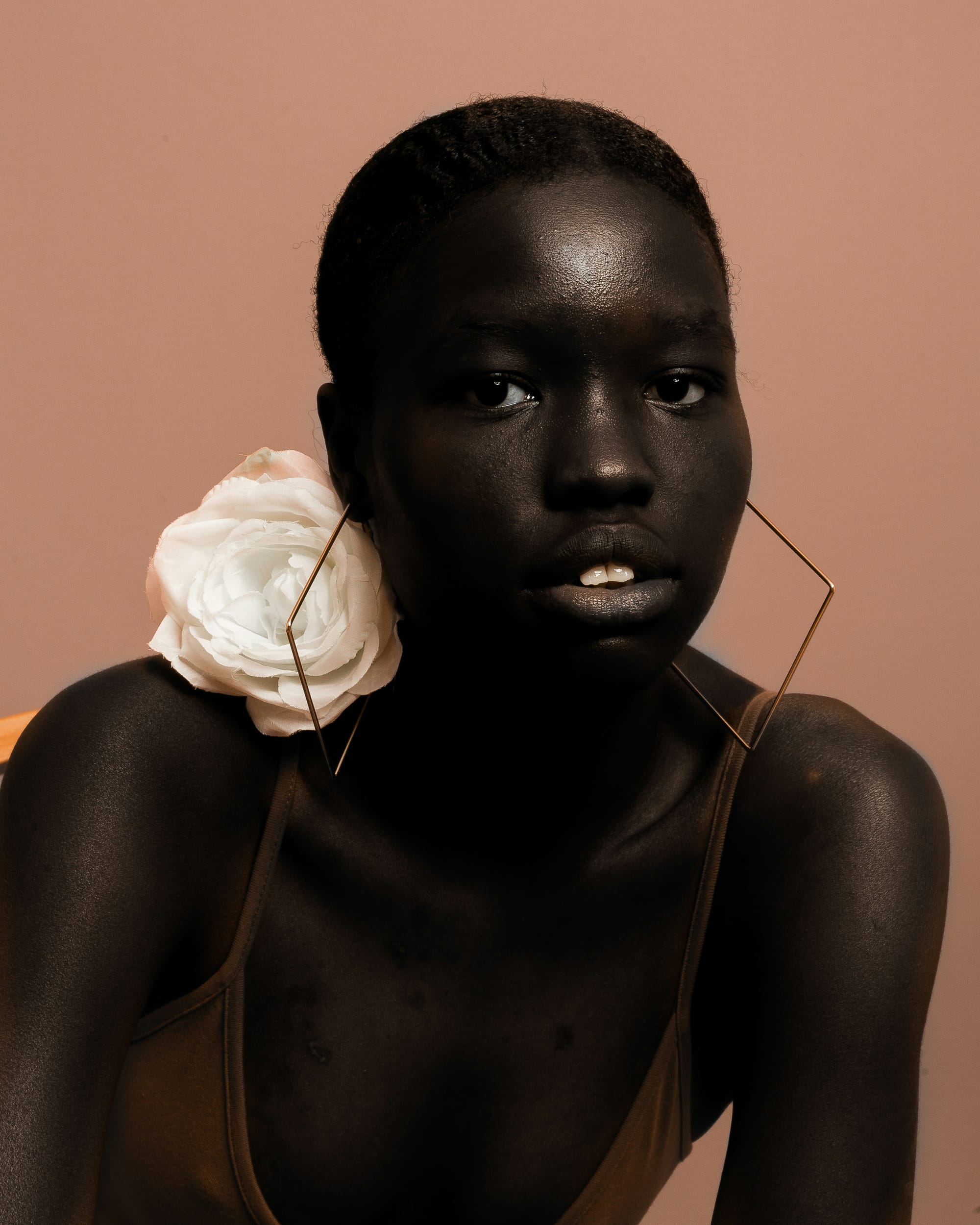In recent years, the West African beauty industry has witnessed an exciting transformation, becoming one of the most promising frontiers for investors in the beauty sector. With evolving beauty standards, a thriving culture of beauty shows like the Africa Makeup and Beauty Fair, and an expanding consumer base, the region is ripe for investment.
The West African beauty market is poised for exceptional growth, with projections indicating a market size of $4.2 billion by 2026, expanding at a CAGR of 6.86% from 2024 to 2029. This growth is not merely a statistic; it is driven by an increasing middle class, heightened urbanisation, and a youthful population eager to embrace beauty and personal care.

Moreover, the overall African beauty and personal care market was valued at approximately $30 billion in 2023, with Nigeria leading the charge as a key player in the region, projected to reach €3.2 billion by 2025. The demand for beauty products is no longer a luxury but an integral part of everyday life, supported by shifting consumer habits that prioritise hygiene, self-care, and personal expression.
A Growing and Dynamic Beauty Market
West Africa is home to a diverse and increasingly urbanised population of over 400 million people, with Nigeria, Ghana, and Côte d’Ivoire at the heart of its beauty market. As consumer behaviour shifts in response to increased disposable incomes and rising middle classes, beauty and personal care spending is soaring.
A 2023 report by Euromonitor noted that sub-Saharan Africa's beauty industry is growing at an annual rate of 8%, outpacing the global average. By 2025, the industry in West Africa alone is expected to reach billions in market value, a figure propelled by strong local demand and a youthful, brand-conscious demographic eager to explore beauty products that meet their specific needs.
West Africa’s Unique Beauty Needs and Rising Local Brands
West African consumers are demanding beauty products that reflect their unique skin tones, hair textures, and personal care needs. This local demand has catalysed a shift in the market, with West African beauty entrepreneurs creating products specifically formulated for darker skin tones and African hair types.
Brands like House of Tara in Nigeria and Colorbox Cosmetics in Ghana are examples of successful local brands meeting these needs, proving that products designed by Africans for Africans can capture the market and cultivate brand loyalty.
This local adaptation is an attractive opportunity for investors. While global brands have long dominated, African consumers are showing a growing preference for homegrown brands, often choosing products that resonate with their cultural identity. Investing in local brands or partnerships can provide significant returns while fostering cultural relevance within products and campaigns.

Beauty Shows and Events as Catalysts for Growth
Beauty events like the Africa Makeup and Beauty Fair, Ghana Beauty Awards, and Lagos Fashion Week have amplified West Africa’s beauty market. These gatherings draw thousands of attendees, industry experts, and beauty enthusiasts, creating a vibrant ecosystem for networking, product launches, and trendsetting. The growing popularity of such events highlights both consumer enthusiasm and the maturation of the local beauty industry.
These beauty shows also serve as a platform for local entrepreneurs to gain visibility and showcase their brands, helping them attract investment and partnerships. For investors, these events offer invaluable insight into market trends and consumer preferences, helping identify potential brands to support. The West African beauty scene is becoming a mainstay, and as more international brands and media outlets pay attention, the region’s profile continues to grow.
Key Sectors for Investment Across the Beauty Supply Chain
The opportunities for investment in West Africa’s beauty market are not limited to the brands alone. Across the beauty supply chain, from manufacturing to packaging, marketing, and distribution, there are significant gaps that investors can fill:
Manufacturing: Currently, much of West Africa’s beauty production relies on imports, making local manufacturing a lucrative venture. Setting up manufacturing facilities for skincare, haircare, and cosmetic products could reduce costs, increase accessibility, and position local brands to compete more effectively.
Packaging and Labeling: Local packaging solutions are currently limited, and many brands have to source packaging from abroad, which raises production costs. Investing in local packaging and labeling facilities could fill this need and improve profit margins for local beauty brands.
Science and Formulation Labs: Building research and development centers for beauty product formulation would enable brands to create products tailored to the African climate and skin types, increasing the efficacy and appeal of their offerings. These labs could work on formulations that address hyperpigmentation, sun damage, and other common skin concerns in the region, giving local brands a competitive edge.
Marketing and Distribution: The digital revolution in West Africa offers a fertile ground for innovative beauty marketing. While social media and influencer marketing continue to grow, distribution remains a challenge. Investment in robust logistics and distribution networks will be essential to reaching rural and urban consumers alike, bridging gaps and expanding the reach of beauty products across the region.
An Industry with Potential for High Returns and Social Impact
Investing in the beauty market of West Africa is not only financially promising but also socially impactful. The sector is predominantly female-driven, with a majority of beauty business owners, employees, and consumers being women. By investing in this industry, investors can foster female entrepreneurship and empowerment across the region.
According to the International Finance Corporation (IFC), increasing access to finance for women-led businesses in West Africa could unlock significant GDP growth, with the potential to add billions to local economies by 2030.
Furthermore, the beauty industry has a considerable employment potential for West Africa’s youth, with opportunities in production, retail, digital marketing, and brand management. With high youth unemployment rates across the region, the beauty sector can create jobs and help reduce poverty levels, thus contributing to sustainable economic development.
Timing is Right: Factors Making 2025 a Landmark Year
Several factors make 2025 an ideal year for investment in the West African beauty market. Increasing internet penetration and smartphone adoption are making it easier for consumers to access products and for brands to reach new customers through e-commerce. Additionally, government initiatives and trade agreements like the African Continental Free Trade Area (AfCFTA) are opening doors for regional trade and collaboration, further enhancing market accessibility.
Another factor is the rising interest from global brands in the African consumer base. As major players enter the market, there is a window for local brands to solidify their position with investors' support, which can help these brands scale rapidly to meet rising demand and compete on the international stage.
A Call to Investors
In 2025, West Africa’s beauty industry presents an unparalleled opportunity for investors looking to enter a high-growth market with both financial and social returns. The West African beauty market presents an attractive business case. With a growing population of over 300 million people in the middle class, substantial disposable income, and a young, trend-aware demographic, the market offers endless possibilities.
The region’s unique beauty needs, vibrant beauty shows, and a growing ecosystem of local brands make it an ideal investment destination. By investing across the supply chain — in manufacturing, packaging, research and development, and marketing — investors can help shape the future of West Africa’s beauty industry, ensuring that it thrives on a global stage.
The potential rewards are immense, both in terms of profitability and the positive social impact on employment and economic growth. This is more than just an investment opportunity; it’s a chance to participate in a transformative moment for West Africa’s beauty market. The time to invest is now.

